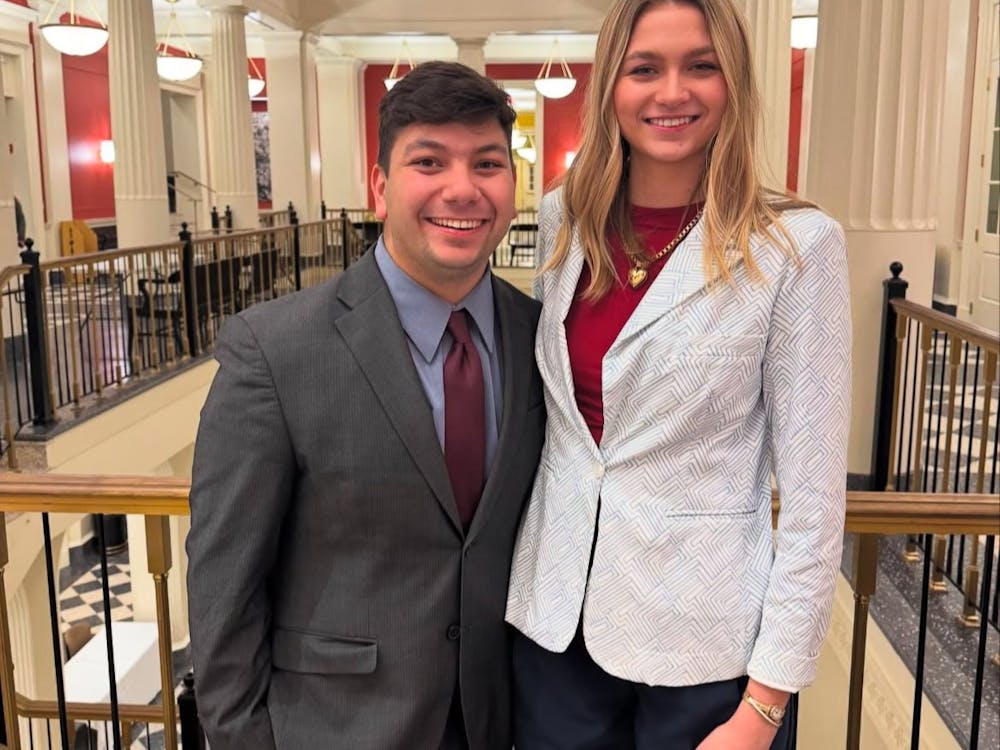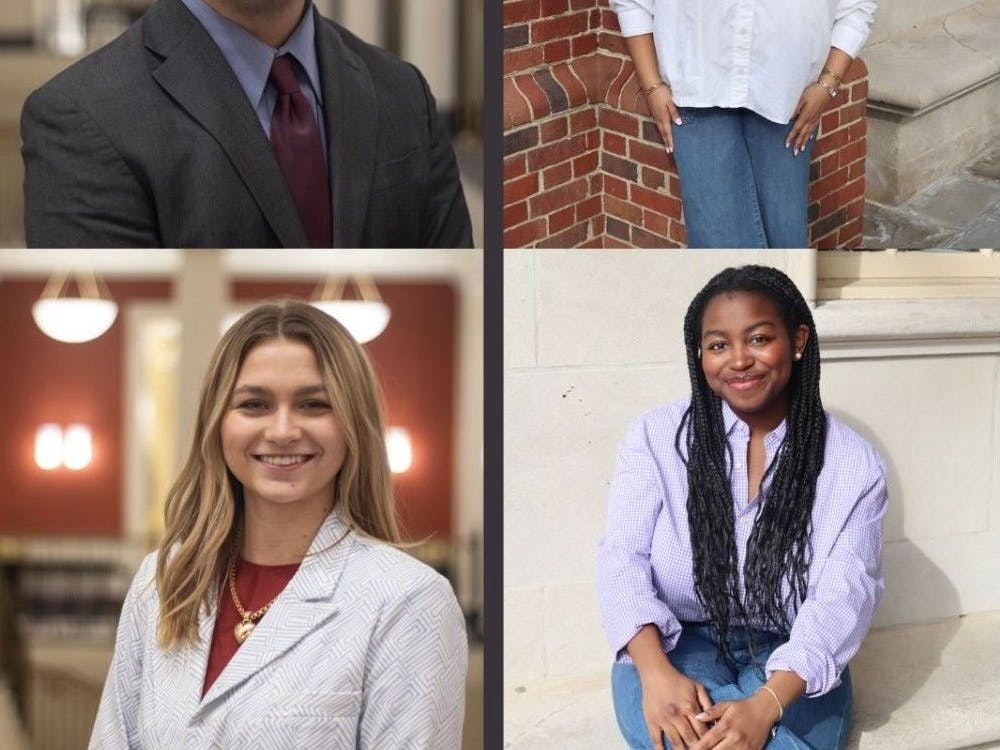This spring, candidates for student body president will face tighter spending caps and more lenient rules for election violations.
Miami Associated Student Government (ASG) senate passed the new election guidelines in their Feb. 6 session. Two proposed amendments and a lengthy floor debate pushed the meeting toward the three-hour mark.
The most contentious change was the reduction of the general election spending limit from $1,500 in 2017 to $1,000 this year. The decrease was proposed as a way to minimize the impact of a student's personal wealth on their success in an election, said the authors of the bill, including Speaker of the Senate Cole Hankins and Senator Trent White, who both defended the changes during debate.
Some senators, however, felt the cuts didn't go far enough.
Senators Nick Froehlich and Zoe Douglas each floated amendments reducing the spending caps even further. Neither proposal received enough votes to make it to the floor.
"By the speaker's admission, they said that you are at a disadvantage if you are a low income student, and you're trying to win this election," said Froehlich, who ran for student body president in 2017. "That's an understatement."
Froehlich wasn't the only former student body president candidate to speak up. Senator Austin Worrell, who ran against Froehlich in 2017, also voiced his concerns.
"If my VP candidate, Haley, did not have her dad who decided to donate $500 to the campaign, I could not have spent as much money as I did," said Worrell. "It stressed me out to no end that I had to use personal money to campaign, to do something where I wanted to give back to the school."
Speaker Hankins stood by the original $500 reduction, citing concerns that dropping the cap too low too fast could impact election turnout. Hankins said he met with Froehlich in the process of crafting the new rules.
"I took that perspective, and that is a lot of the reason that the spending allowance was reduced the way that it is, and that is all I know how to do in a compromise," said Hankins. "If Senator Froehlich, and others, want to take [the cap] down even more, they should table it and they should come and write it themselves."
The major change to the violations portion of the election rules is the addition of the word "incidental" to more minor Level I violations, which carry only a fine, and "purposeful" to Level II violations, which incur a 24-hour ban on campaigning in addition to a fine.
In other words, the student-run ASG elections committee must now determine intent when investigating campaign violations over the short presidential election cycle.
Enjoy what you're reading?
Signup for our newsletter
The changes come after a series of issues in the 2017 election, when two campaigns were penalized for Level I violations and some signage violations went unpunished by the committee."Being on the [elections] committee last year, I kind of saw where we were hamstrung making decisions," said Hankins. "We were provided with a couple of violation options and neither of them were great options."
Other ASG Updates:
- Eight vacant senate seats are up for special election at tonight's ASG session.
- Senator Courtney Rose won the special election for Secretary of Diversity and Inclusion, an executive cabinet position vacated earlier in the semester by senior Quentin McCorvey. Her former senate seat is one of the eight to be filled at tonight's session.
- The senate established the ad-hoc Student Labor Relations Committee to explore the issues facing Miami University student employees and staff. Senator Nick Froehlich proposed the committee and was nominated as chair.
- The Conflict of Interest Act was proposed in response to a political stunt carried out by Froehlich. In the days leading up to the Feb. 6 senate session, he circulated election petitions in an attempt to simultaneously run for multiple open senate seats. The act, which was passed unanimously, bars students from holding multiple senate seats at the same time.



